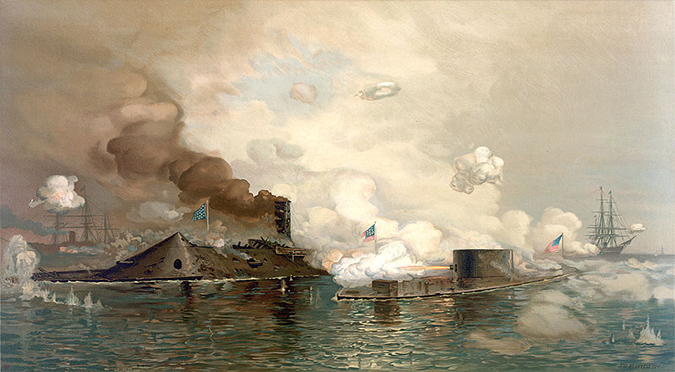
CIVIL WAR: Clash of the Ironclads!
May 10, 2016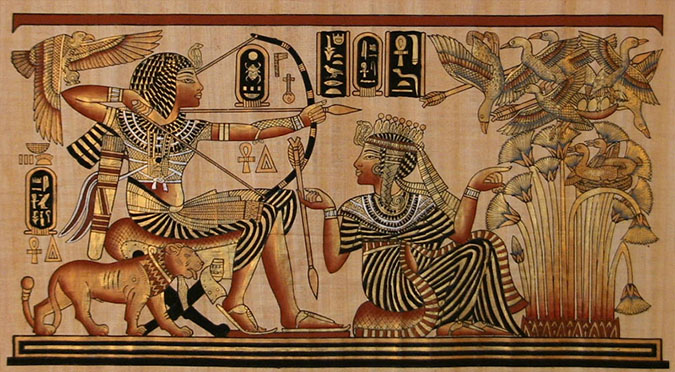
11 Famous Pharaohs
June 22, 2016Click here for Part One: George Washington, John Adams and Thomas Jefferson.
CONTENT WARNING: the following may contain some mild language, crude humor, alcohol, and commentary on American politics.
4. JAMES MADISON

Presidential Years: 1809-1817
Political Party: Democratic-Republican
Vice President: Elbridge Gerry / <Vacant>
Ran Against: James Monroe / Rep. John Randolph
First Lady: Dolley Payne Todd Madison
Quote: “The purpose of separation of church and state is to keep forever from these shores the ceaseless strife that has soaked the soil of Europe with blood for centuries.”
Best known for: Author of the Bill of Rights, Father of the Constitution, The War of 1812
Random Fact: The shortest US President to date at a whopping 5’4″ and only 100 pounds!
Pros:
- Introduced the idea of Checks and Balances
- Wrote the Federalist Papers and Bill of Rights
- Father of the Constitution
- Led the country during the War of 1812
- Signed the Treaty of Ghent to end the War of 1812
Cons:
- May have caused the War of 1812
- Got his ass kicked during the War of 1812… by Canada… also the British burned the White House down…
- Owned slaves and unlike many other Founding Fathers, did not release them upon his death
Bio: James Madison, often called ‘the Father of the Constitution’ became the nation’s fourth President, after serving as Thomas Jefferson’s Secretary of State. Like many of the other dudes on this list, Madison was busy making a name for himself well before Commander-in-Chiefing. This guy basically created our current governmental structure.
That whole Checks and Balances thing I mentioned before?
James helped to restructure the United States after the failure of the Articles of Confederation (article coming soon) by plopping his Constitution on the table. If that’s not enough freedom for you, he then whipped out the Bill of Rights before riding off into the sunset.
During his retirement though President Jefferson called him back into action to help with those British jerks kidnapping our sailors to meet their quotas. When Madison took Jefferson’s place in office, this ongoing beef with King George eventually led to a rematch: the War of 1812.
Although America managed to defend its championship title, it wasn’t exactly a victory either. The US decided to take the opportunity to ‘liberate’ Canada in the fight against the crown, but Canada very politely said ‘no thanks’ before kicking us to the curb. Meanwhile, the British managed to kidnap multiple American cities and even burned down the White House!
The First Lady, Dolley Madison, ran back into the burning building and recovered as many priceless paintings and artifacts as she could carry, single-handedly safe-guarding our nation’s most valuable national treasures, including the Declaration of Independence and one of the only surviving portraits of George Washington! Despite all the setbacks, Madison’s resolve pulled the country together during its darkest hour and peacefully ended the conflict with the Treaty of Ghent.
5. JAMES MONROE

Presidential Years: 1817-1825
Political Party: Democratic-Republican
Vice President: Daniel D. Thompkins
Ran Against: Rufus King (lol)
First Lady: Elizabeth Kortright Monroe
Quote: “National honor is the national property of the highest value.”
Best known for: The Monroe Doctrine
Random Fact: Monroe was practically unopposed during re-election, the entire Federalist party had imploded. He would have won unanimously except for the fact that one voter wrote in John Quincy Adams…
Pros:
- Founding Father
- Ushered in ‘The Era of Good Feelings’
- Under his administration, the nation grew from 19-24 states
- Served under Washington, Jefferson and Madison
- Helped negotiate the Louisiana Purchase
Cons:
- Owned a ton of slaves
- Was not very popular among Federalists
Bio: Aaron Burr once called James Monroe: “one of the most improper and incompetent (candidates)… Naturally dull & stupid, extremely illiterate, indecisive to a degree that would be incredible to one who did not know him.” Which honestly sounds less like a former Vice President and much more like an angry internet troll. But then again this is the guy that shot Alexander Hamilton over a difference of opinion, so take that for what it’s worth.
Despite being super unpopular with the Federalists, Monroe’s administration lead the country during its most prosperous and relatively tranquil period yet. Dude was down to Earth and in modern terms was probably the kinda guy you could kick back and drink a beer with. He also had a taste for the finer things in life, so decked out his crib (the White House) with tons of French furnishings.
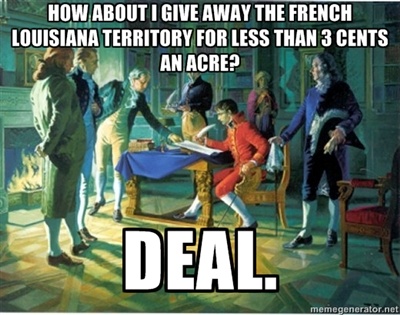 What’s more is this bro actually served under Washington himself during a relatively unknown little skirmish known as the American Revolution and was promoted to Captain of the Continental Army after proving his bravery in the face of ball shattering, tear-inducing cannon fire. If that doesn’t give you resume envy, than how about the fact that he helped Jefferson negotiate the Louisiana Purchase with Napoleon!
What’s more is this bro actually served under Washington himself during a relatively unknown little skirmish known as the American Revolution and was promoted to Captain of the Continental Army after proving his bravery in the face of ball shattering, tear-inducing cannon fire. If that doesn’t give you resume envy, than how about the fact that he helped Jefferson negotiate the Louisiana Purchase with Napoleon!
During his presidency, Monroe came up with this doctrine thing that forbade European powers from further colonizing North or South America in an effort to foster the independence of the Latin-American nations, a pact that the British also supported.
After serving two terms, at 73, he was the third President to die on the Fourth of July. (conspiracy?)
6. JOHN QUINCY ADAMS

Presidential Years: 1825-1829
Political Party: Democratic-Republican
Vice President: John C. Calhoun
Ran Against: John C. Calhoun, William H. Crawford, Henry Clay and Andrew Jackson
First Lady: Louisa Catherine Johnson Adams
Quote: “If your actions inspire others to dream more, learn more, do more and become more, you are a leader.”
Best known for: Being the son of John Adams
Random Fact: John Quincy Adams once approved an expedition to the center of the Earth (in search of mole people?), a voyage which was scraped once Jackson took office, only because he believed that the Earth was flat…
Pros:
- Reduced the National Debt from $16 Million to $5 Million
- Was the first President to denounce slavery!
- Spoke French, Italian, Russian, German and Latin! (English too)
- Purchased Florida from Spain.
Cons:
- Although he was a very moral-driven man with good intentions, he was not very effective at getting his reforms implemented, and was often thwarted by Congress.
- Technically lost the election to Andrew Jackson, but was chosen by the House of Representatives, which pissed off a lot of people.
- Purchased Florida from Spain.
Bio: The son of John Adams, John *Quincy* Adams traveled with his father on diplomatic missions to Europe. After getting his Masters at Harvard (like a boss), John Q served as a US Senator and was a minister to several countries before becoming Monroe’s Secretary of State. Neither Adams nor Jackson had enough votes from the electoral collage, but the House of Representatives chose Adams even though Jackson had more votes, which made him a lot of enemies right out the gate.
Throughout his term as President, Congress blocked many of the reforms he attempted to pass. Despite this he still managed to lower the nation’s debt significantly and purchased Florida from Spain. After his Presidency, Adams (Jr) was elected to Congress and served as an outspoken abolitionist. In 1841, at 73 years young, John Q took up the Amistad case, successfully defending the Africans who’d been wrongly / illegally enslaved and tortured, making waves that would later shake the nation to its core.
John Quincy Adams was so freaking dedicated to serving his country that he collapsed mid-speech on the floor of the House of Representatives at the age of 80 and died of a stroke.
Adam’s Vice President, John C. Calhoun on the other hand, was a staunch supporter and spokesperson for the Slave Trade. Calhoun was a ‘War Hawk’ who spent most of his life defending the pro-slavery movement and is considered by many to be one of the catalysts for the Civil War… He once said, “In looking back, I see nothing to regret and little to correct.”
7. ANDREW JACKSON

Presidential Years: 1829-1837
Political Party: Democrat*
Vice President: <Vacant> / Martin Van Buren (future Prez)
Ran Against: John Quincy Adams (previous Prez)
First Lady: Rachel Donelson Jackson
Quote: “Any man worth his salt will stick up for what he believes right, but it takes a slightly better man to acknowledge instantly and without reservation that he is in error.”
Best known for: Being on the $20 and The Trail of Tears…
Random Fact: He liked to shoot people… a lot.
Pros:
- *”Hero” at the Battle of New Orleans during the War of 1812
- **Reduced the National Debt to $33,733.05
Cons:
- Signed the Indian Removal Act into law.
- *Although Jackson defeated the British in New Orleans, it was technically after the war had ended.
- **By dissolving the National Bank he created a country-wide depression.
- The Nullification Crisis
- Created the Spoils system.
- Was fervently pro-slavery.
- Flat-Earther
- Had a terrible temper.
- Had a gambling problem.
- Fought in a multitude of duels and killed several people.
- Broke numerous campaign promises.
- The list goes on…
Bio: Jackson was a self-made man and champion of the common folk… even though he was the absolute richest man elected to office, ever. He fought the British during the aforementioned War of 1812 and won a significant victory during the Battle of New Orleans… after the war was already over?! He became the seventh President of the United States, because people wanted ‘an outsider’… and he was also kind of a terrible person.
He was born in South Carolina, and at the age of ten, he and his brother fought off the British during the Revolution. Unfortunately, Andrew was captured and beaten, left half deaf with a scar across his face. At fourteen the war was over and he was an orphan.
Despite the seriously shitty hand he’d been dealt, he managed to grab a hold of the American dream and rose from poverty to prominence. Jackson eventually became a frontier lawyer and went West, beyond civilization, to claim the untamed land west of Tennessee.
Jackson, also known as ‘Old Hickery Stick’ (probably due to the stick up his butt, or the fact that he was as tough as Beef Jerky) became an honorary general and ruthless Indian hunter. As a member of the House of Representatives he was known for his violent temper and would eventually become the richest U.S. President to hold office because of all the land he conquered and sold.
Now it’s worth mentioning that Andrew Jackson (of Jacksonville fame) was a scary man. His face is plastered across the $20 bill that you often wish you had in your wallet and he sorta looks like Dracula. He was notoriously known for fighting in about 14 or more duels throughout his life, typically over his wife Rachel, because you know real men settle their differences with pistols. You’ve gotta admit though, surviving that many duels is pretty hardcore, but also kind of sociopathic.
He was once shot during a face off with Charles Dickinson and still managed to kill his opponent after taking a bullet to the freaking chest! He was literally quoted as saying, “If he’d put a bullet through my brain, I’d still live long enough to kill the son of a b*#$&!” (exact quote).
So yeah, this is the man they decided to unleash during the War of 1812.
After 275 men, women and children were massacred at Fort Mims, all because someone left the gate open, it was General Andrew Jackson who led the retaliation. At the Battle of Horseshoe Bend where General Andrew Jackson, commanding several state militias began his campaign against the Creek-Indians. It took Jackson approximately five hours to effectively end the conflict with a body count of well over 500.
Later, at the Battle for New Orleans – 8,000 British troops under the command of Lt. General Edward Pakenham were sent in to deal with Jackson and his rag-tag volunteer army. These were Britain’s finest, the best of the best, veterans of Waterloo, the men who defeated Napoleon Bonaparte! Andrew Jackson bared his fangs, and ripped them a new one. The battle became a decisive victory for the United States, and Jackson became a national hero. Unfortunately, no one got the memo that the war had ended a month earlier.
And then after all that, everyone thought this guy should be in charge.
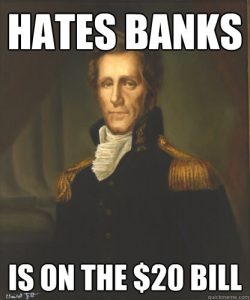 As President, Jackson may have lowered the national debt and improved trade with Europe but he also made a number of grievous missteps: he divided the country by destroying the National Bank for personal reasons. He also had a gambling problem, anger management issues and complete contempt for the judicial system.
As President, Jackson may have lowered the national debt and improved trade with Europe but he also made a number of grievous missteps: he divided the country by destroying the National Bank for personal reasons. He also had a gambling problem, anger management issues and complete contempt for the judicial system.
During the Nullification Crisis, South Carolina threatened to secede due to enormously high import tariffs, which they deemed unconstitutional. In response to the South Carolina legislature, Jackson sent troops to shut them up.
And then there’s ‘The Indian Removal Act’ – his plan to ‘peacefully’ relocate the Native Americans, a decision that passed Congress by 13 votes in 1830. As you are probably aware, this event is known today as ‘The Trail of Tears’ and is perhaps one of the greatest tragedies in American history – forcing 16,000 Cherokees (including women and children) to travel 2,200 miles on foot (many in chains), killing at least 4,000 non-combatants, stealing their land, and nearly annihilating an entire culture.
In 1832, the state of Georgia even ruled that the Cherokee were a sovereign nation and therefore were not subject to the laws of the United States. Andrew Jackson ignored the ruling and had them deported anyway. This also directly led to the Seminole War (1835-1842), when various Floridian tribes banded together and stood their ground against the American military – often regarded as “the longest and most costly of the Indian conflicts of the United States” with thousands left dead on both sides.
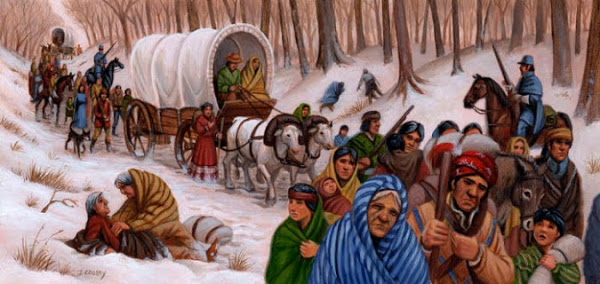 All in all, I would argue that there’s very little reason for keeping this guy on the $20 bill or that he ever should’ve been considered. Harriet Tubman on the other hand was a total freaking badass, like a slightly less violent Michonne from Walking Dead. She was a humanitarian and hero, who has seriously earned her place as an American icon…
All in all, I would argue that there’s very little reason for keeping this guy on the $20 bill or that he ever should’ve been considered. Harriet Tubman on the other hand was a total freaking badass, like a slightly less violent Michonne from Walking Dead. She was a humanitarian and hero, who has seriously earned her place as an American icon…
Despite the country’s economic troubles stemming from Andrew Jackson’s disastrous presidency, much of the blame was shifted to the next guy, Martin Van Buren…
To Be Continued… in Part 3: Van Buren, Harrison, Tyler, and Polk!
Erik Slader
Thanks for reading! If you’re a fan of the blog, be sure to listen to the Epik Fails of History podcast and check out my all new “EPIC FAILS” book series – available now wherever books are sold! “EPIC FAILS: Not-So-Great Presidents” hits shelves on January 15th, 2019.

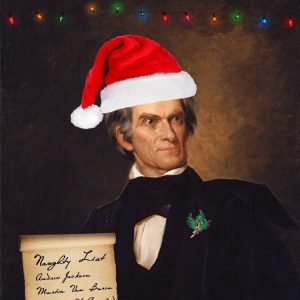 Presidential Pros & Cons – Part One
Presidential Pros & Cons – Part One
The War of 1812: America vs England – Round 2
CIVIL WAR: Clash of the Ironclads!
Sources:
“Heroes of History” by Winston Churchill
“The World Book of America’s Presidents” by Dale W. Jacobs
American Presidents: Life Portraits (C-SPAN)
Mini-Biography (Bio)
http://www.history.com/topics/native-american-history/trail-of-tears
https://www.whitehouse.gov/1600/first-ladies
https://www.quora.com/Whats-the-biggest-mistake-a-president-has-ever-made
http://usatoday30.usatoday.com/news/washington/2006-02-18-presidential-goofs_x.htm
http://www.examiner.com/article/the-ten-biggest-mistakes-american-history
http://americanhistory.about.com/od/jamesmadison/tp/10-Things-To-Know-About-James-Madison.htm
https://www.montpelier.org/research-and-collections/people/african-americans/madison-slavery

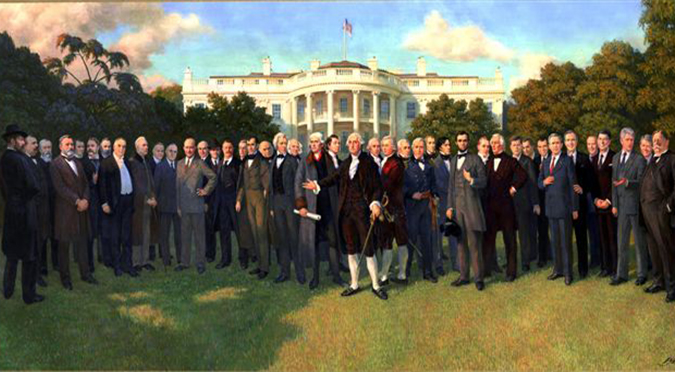
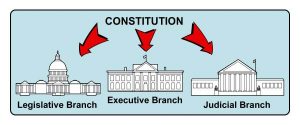
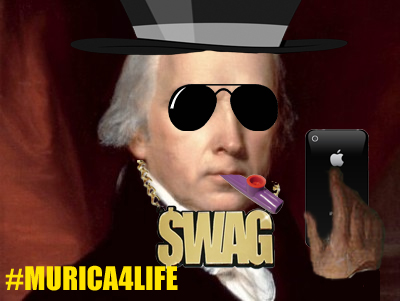
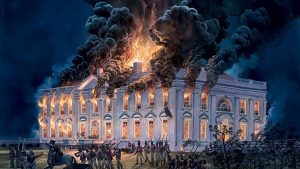
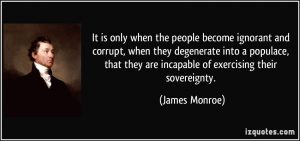
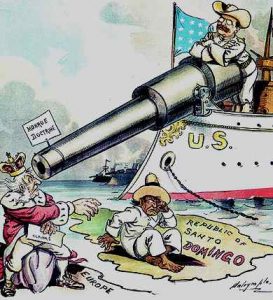
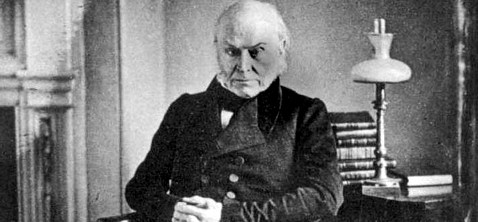
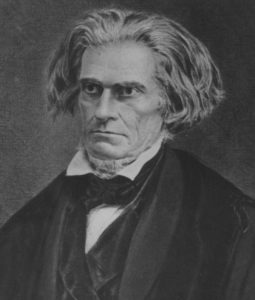
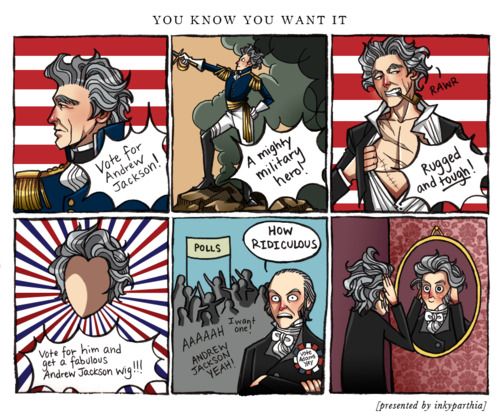

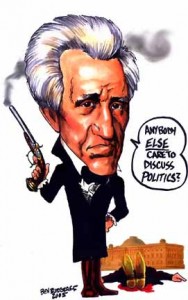


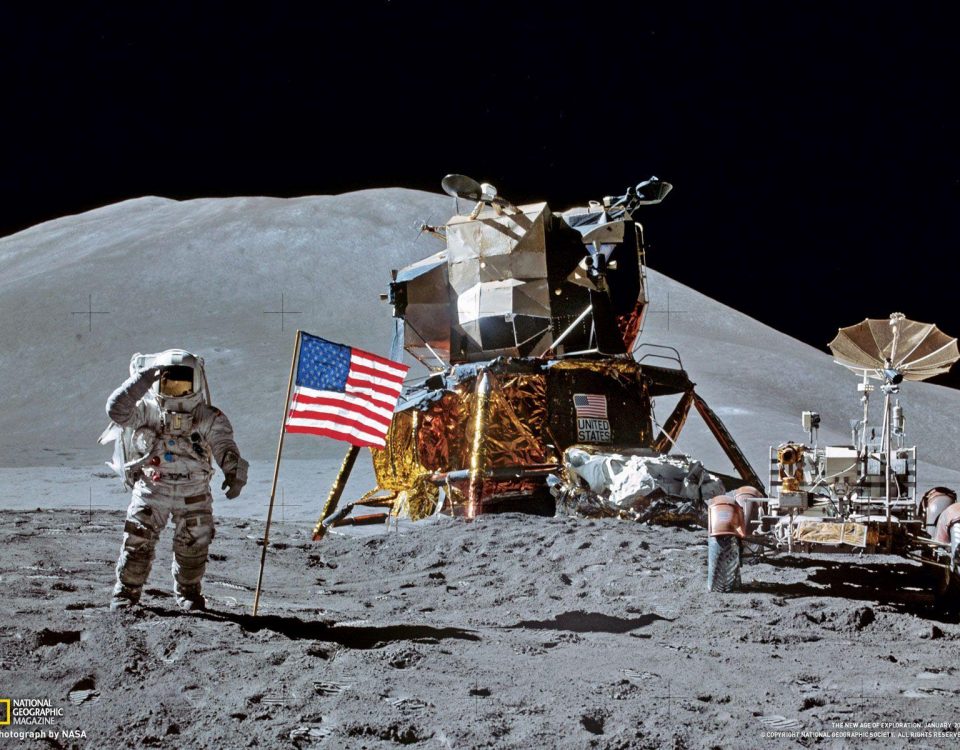

4 Comments
All that being said, I thought I d list 5 pros and cons to Bernie Sanders the presidential candidate.
Love how everything is so accurate.
Thanks man, I strive for accuracy! 😀
[…] that’s right, President James Madison himself led his troops firsthand into the battle against Major General Robert Ross’s raid… […]